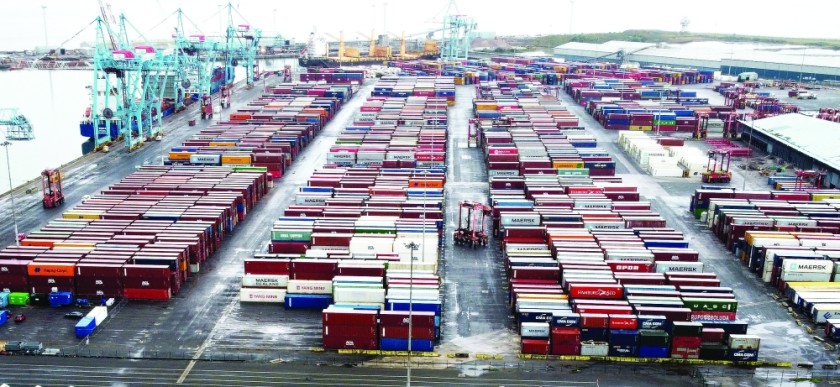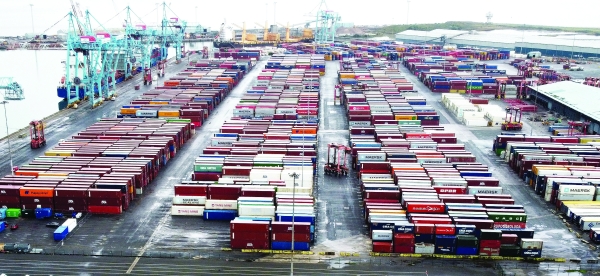The world economy will not suffer as badly from President Trump’s tariffs as previously thought, the International Monetary Fund (IMF) has predicted. Global growth is set to be three per cent this year, the IMF said, which is higher than its previous 2.8 per cent forecast made in April.
The world economy will grow by a further 3.1 per cent in 2026, which is also slightly higher than its three per cent growth forecast made earlier this year. Economists at the UN agency said it upgraded its growth forecast due to “front-loading” before Trump’s Liberation Day, where businesses and customers imported goods before tax increases came into effect.
But they warned that this burst of activity risked creating “exposures” that could leave firms vulnerable from having too much stock or holding on to additional costs. The lower-than-expected average tariff rate and improvements in financial markets are also set to benefit the world economy, allowing forecasts to be revised.
Deals struck between Trump and his counterparts in China and the EU, which agreed to invest hundreds of billions in US oil in exchange for a reduction in tariffs to 15 per cent , have reflected easing trade war tensions since April. The IMF said tariffs remained a threat given looming deadlines on the expiry of additional tariffs could hamstring activity and unnerve business owners.
Despite Donald Trump’s trade deal with the UK prime minister, Keir Starmer, to limit tariffs on carmakers and wipe out taxes on aerospace manufacturers, the IMF did not upgrade its growth forecast for the UK. The major forecaster said in April it expected UK GDP to inch up 1.2 per cent this year and 1.4 per cent next year.

A general view of stacked shipping containers at Peel Ports Liverpool docks in Liverpool, Britain. Image for illustration only. — Reuters
Chancellor Rachel Reeves said: “The IMF’s forecasts show that the UK remains the fastest growing European economy in the G7 despite the global economic challenges we are facing.
“I am determined to unlock Britain’s full potential, which is why we are investing billions of pounds through our Plan for Change – in jobs through better city region transport, record funding for affordable homes, as well as backing major projects like Sizewell C to drive economic growth and put more money into people’s pockets.”
Shadow Chancellor, Mel Stride said: “Labour promised growth but the IMF has confirmed what Britain already knows: under Labour, growth is going nowhere.”
The US economy received a larger upgrade to its growth forecast for 2026, with its economy now set to expand by two per cent next year. IMF officials also emphasised the importance of the independence of central banks in what appeared to be a comment aimed to address Trump’s attack on Federal Reserve chair Jerome Powell.
Meanwhile, top business executives are set to receive briefings from the Foreign Office on global risks including conflicts and trade tensions as part of a wider strategy to help UK firms expand overseas. Representatives, of Lloyds Bank, PwC and Premier League are among those attending a first-of-its-kind event at Lancaster House where leading diplomats are set to provide advice on doing business in countries across the world.
The government’s new advisory service, which has been titled the Geopolitical Impact Unit, has been created to give firms “straight from the source” insight on global tensions and expanding abroad, tying up the government’s growth mission with foreign policy amid “turbulent geopolitical times.”
Officials also hope it can replace “expensive” private consultants, allowing companies to spend less on mitigating costs of risks. Chief diplomat, UK foreign minister, David Lammy said the initiative can help provide businesses with expertise on new areas of interest to the UK and link up business leaders across the world.
“We are helping to equip British business with the insights and contacts they need to compete and win in global markets,” Lammy said.
